It was a moment of joy that turned into tragedy upon tragedy. "Our only child, our IVF miracle, was dying," Jennifer Palermo said.
Palermo and her husband, Philip, 43, have shared their devastation after believing that their baby might have autism, only to discover that she has a rare, fatal condition for which there is no treatment.
For the first year of Amelia Palermo's life, she was progressing well and her parents, from Seattle, said it felt like they had "the perfect piece of a puzzle" after years of waiting. But as her health rapidly declined, the six-year-old is now completely blind, suffering with childhood dementia, and will live only a short life.
Jennifer Palermo told Newsweek that just before Amelia turned one, she could tell that "something just wasn't right," but no one knew the extent of her condition at the time. For a long time, everyone thought the toddler had autism, but the reality was much worse.
"All signs pointed towards autism. At first, when I mentioned her not pointing, waving, responding to her name, people thought I was overreacting and told me that babies develop at their own rate," Palermo said.
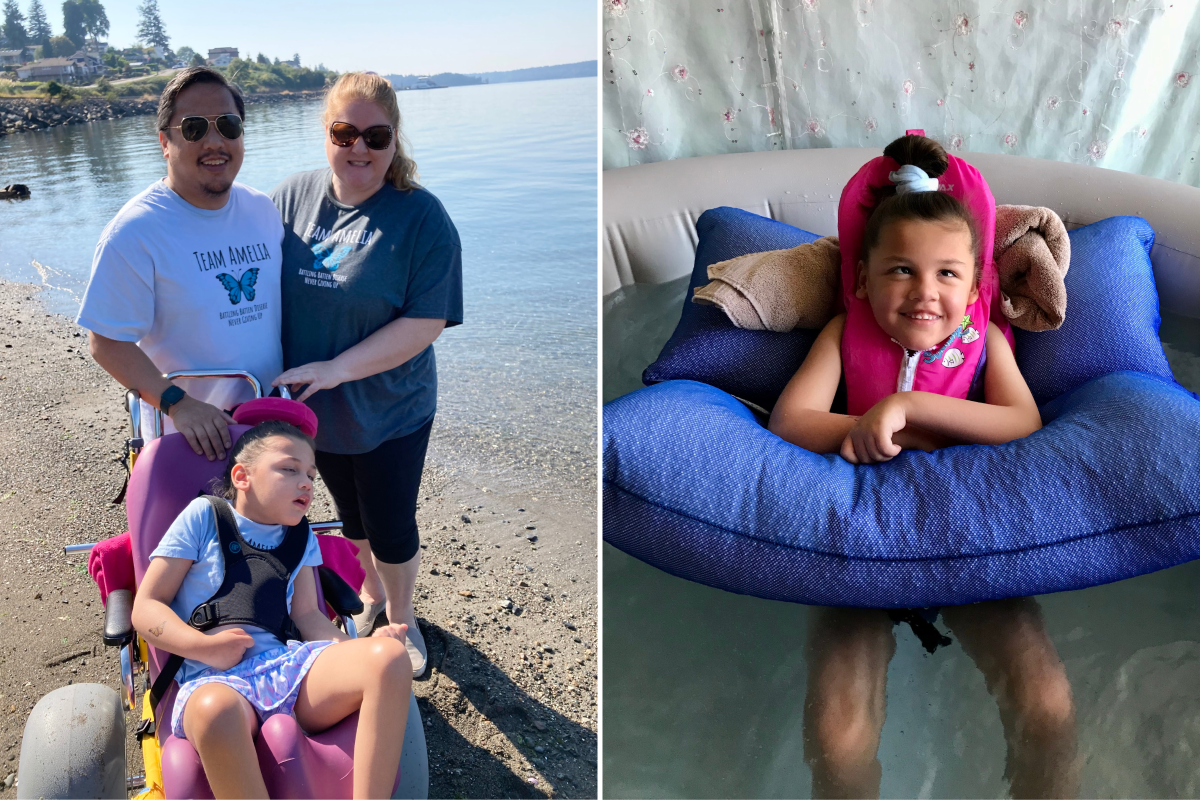
The mom admitted that her "heart sank" when she thought about her daughter growing up with severe autism, and they sought the advice of a developmental pediatrician. At 15 months old, a cognitive test revealed that Amelia achieved the score of a six-month-old, and her motor skills matched that of a nine-month-old.
Amelia was falling behind in many areas, so she was assigned a special education teacher and occupational therapist to work on her development. Over the next six months, she began to improve, and Palermo watched delightedly as her daughter "finally" learned to walk at 18 months old.
"Her walking was never smooth and easy though, she was wobbly and hesitant, and unable to stop and bend down to pick up toys. Socially, she continued to decline, and she stopped smiling as much."
When the toddler became disinterested, Palermo said they often joked that "she was hard to impress," but they kept hoping that her smile would return one day. In February 2019, Amelia was diagnosed with autism, but that still didn't explain her declining motor skills and lack of physical strength.
Doctors considered the potential of a neurological condition, but the referral appointment was many months away, leaving the family waiting desperately. However, it became evident that wasting time wasn't an option, as Amelia started experiencing seizures, and Palermo recalls how that "set everything in motion."
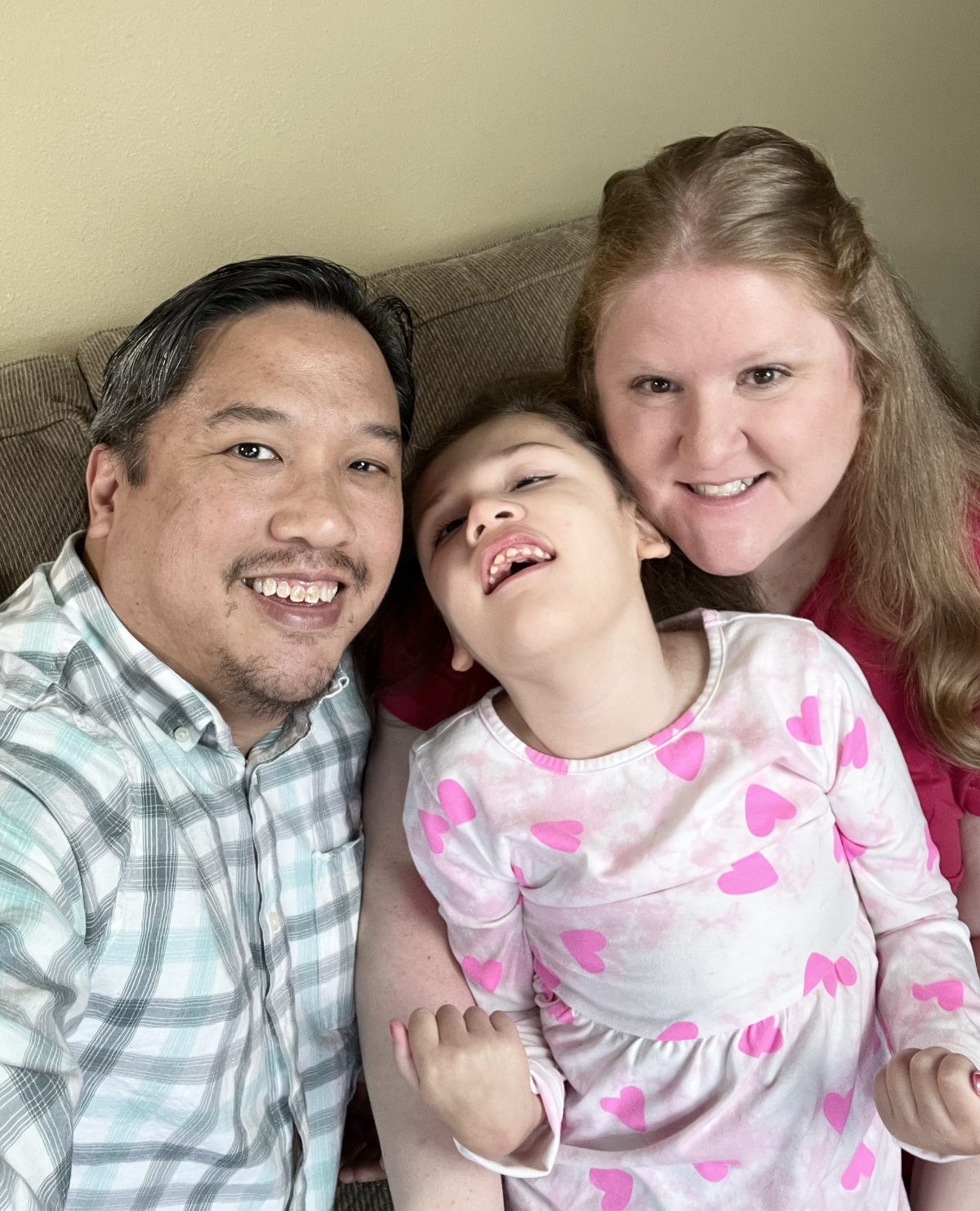
'Batten Was So Much Worse Than We Even Knew Possible'
By the summer of 2019, Amelia had stopped walking and interacting with her surroundings, and now her parents were dealing with the harrowing sight of regular seizures.
A genetic test was carried out, primarily to test for epilepsy because of the seizures, but the family couldn't have expected the results that were ultimately revealed.
Palermo continued: "We waited three weeks, and that's when I got the call. The genetic counselor told us they'd discovered two mutations: one pathogenic and one of unknown significance. They were concerned it might be something called neuronal ceroid lipofuscinosis (CLN1) also known as Batten disease.
"She cautioned us not to google it, but how could we not? We had never heard of Batten disease, so we googled it and saw vision loss, fatal, seizures, feeding tubes, dementia, no cure."
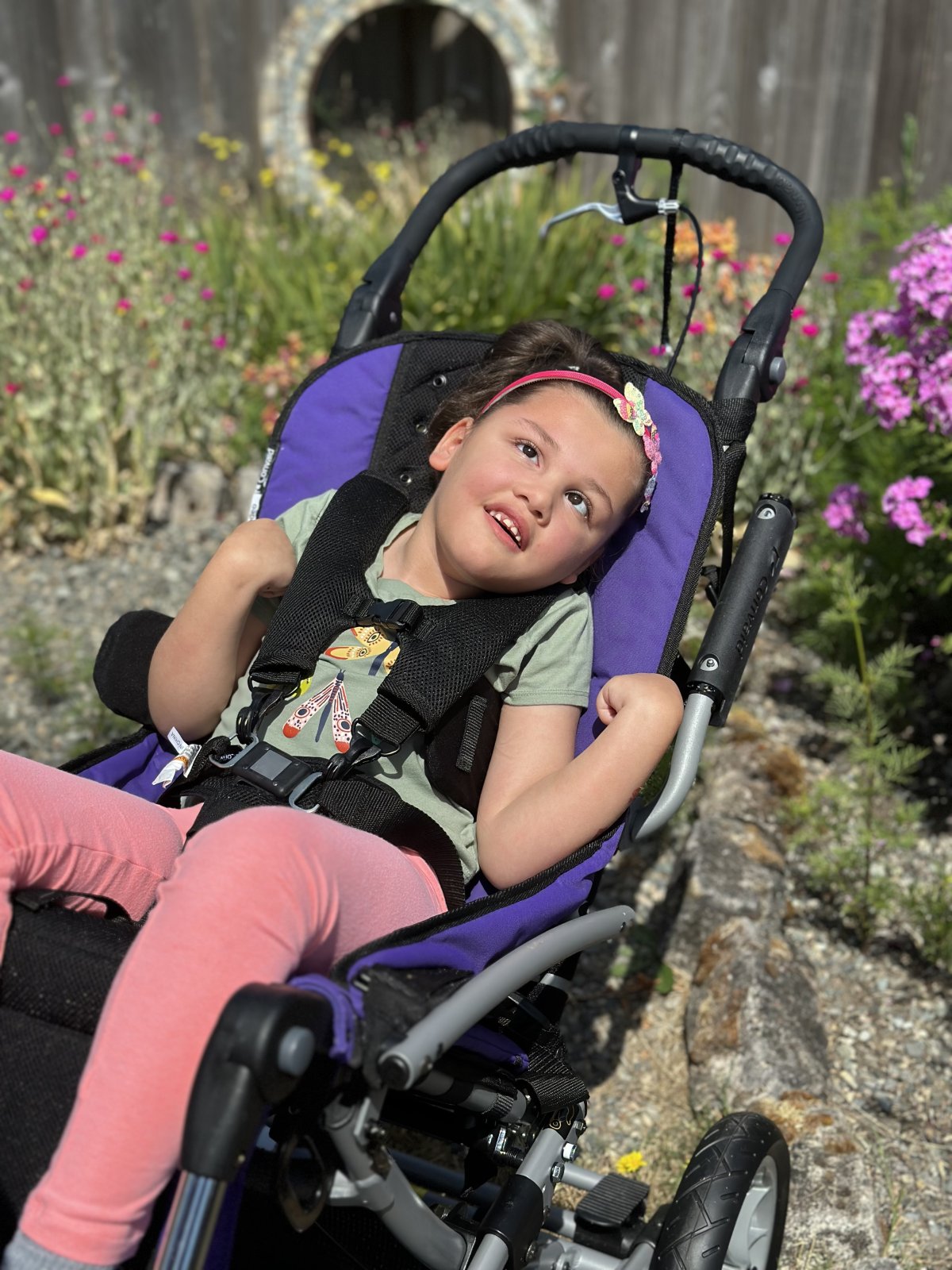
The National Institute of Health (NIH) identifies CLN1 an inherited neurodegenerative disorder, in which nerve cells in the brain can die over time, leading to significant brain atrophy and decreasing ability.
When the diagnosis was confirmed with an MRI scan in June 2019, Jennifer and Philip were both confirmed as genetic carriers, with doctors telling the heartbroken parents that Amelia may only have a year left.
"When the diagnosis of CLN1 came, I remember feeling despair and wishing that she had been diagnosed with autism, because Batten was so much worse than we even knew possible. To say our world was shattered doesn't even come close to capturing how we felt. Our only child, our IVF miracle, was dying.
"The diagnosis seemed to shine a glaring spotlight on everything she would never get to experience, and everything she would lose out on. We didn't even know if she would live to see her next birthday. How do you accept that as a parent?"
The National Organization for Rare Disorders (NORD) estimates that CLN1 only affects around three in every 100,000 births across the U.S., and symptoms will usually show between 2 and 24 months old.
Infants who have developed perfectly fine up to that point will begin to regress, their abilities will decline and progressive vision loss occurs. Severe cases of the disease are often fatal, as NORD suggests that children can lose their battle between the ages of 2 and 9 years old.
As the pediatric neurology division chief, and the medical director of the Primary Children's Center for Personalized Medicine, Dr. Josh Bonkowsky has seen the heartbreak that this condition causes in thousands of cases.
Dr. Bonkowsky said that many families will fight for a diagnosis to provide answers, but with no cure available for Batten disease, the diagnosis only goes so far.
"We don't have a cure for CLN1. Even without a cure, little things we do can make a huge difference. Getting the yearly flu vaccine, providing adequate nutrition, and careful medication management, for example, all have been proven to reduce hospitalizations of children with these severe diseases. Each day less in the hospital is a day better spent at home with their family," he said.
"We can make a diagnosis, which provides certainty for the family, shows the path forward, and even if there is no cure, lays the groundwork for research towards a cure. But a diagnosis without treatment seems like a half-fulfilled promise."
There may not be a solution today, but Dr. Bonkowsky is hopeful that in the years to come, progress will be made and families may be one step closer to a potential treatment of this disease.
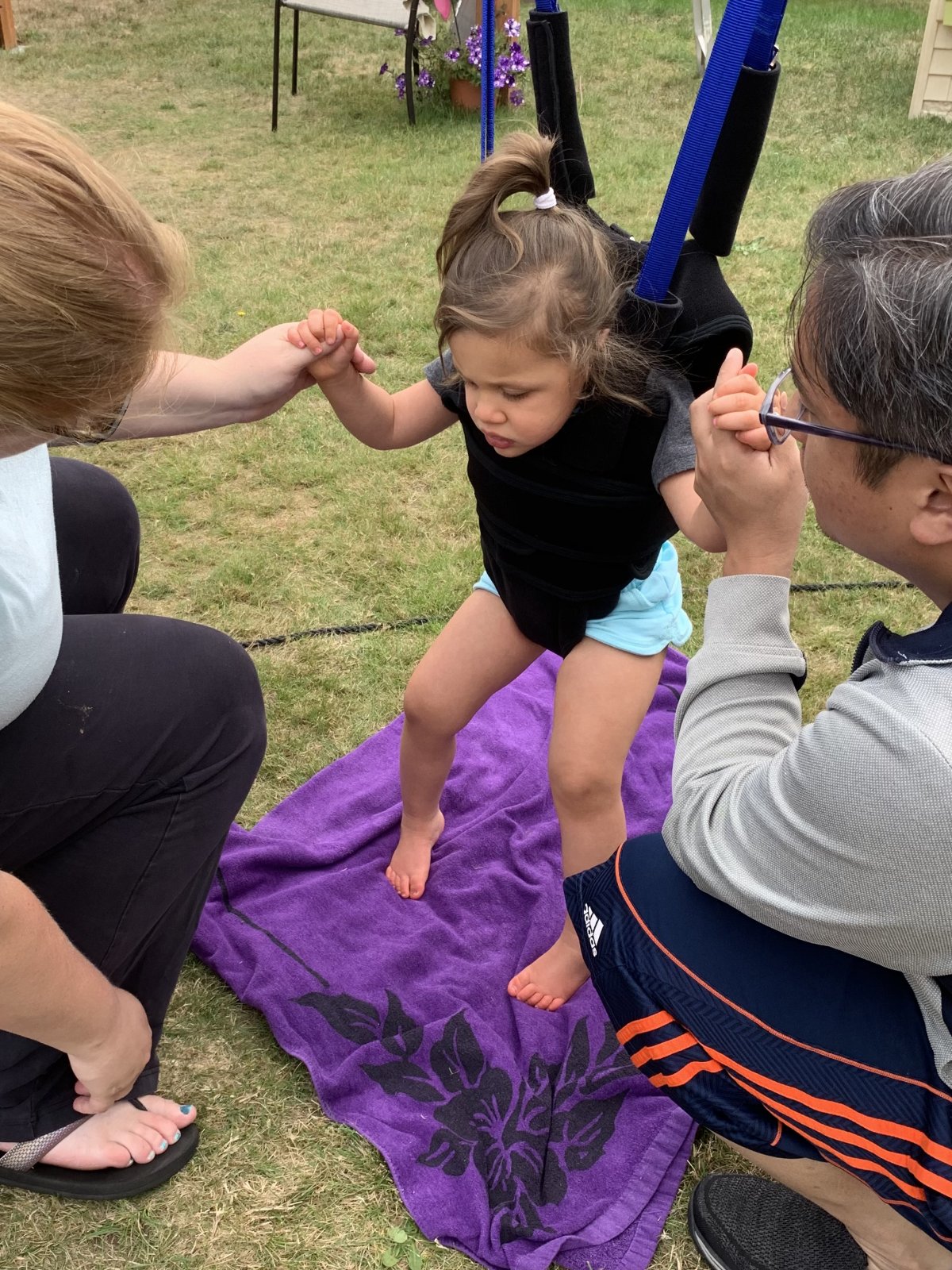
'We Had To Grieve The Loss of The Life We Had Envisioned'
After years of trying to start a family, Palermo couldn't believe that it would now be torn apart by this devastating condition. In the aftermath following the confirmation of Batten disease, the parents grieved for their daughter, as they knew that their time together was limited.
Amelia's condition has continued to decline, as she is now confined to a wheelchair, exclusively tube fed, completely blind, and has childhood dementia. The six-year-old takes four seizure medications a day and requires around-the-clock care from her parents.
"While we grieved because of her diagnosis, we also had to grieve the loss of the life we had envisioned for us as a family," Palermo said.
"For some time, I was afraid to buy clothes for her in a bigger size because I feared she would never wear them. I went through a period of feeling so incredibly guilty that my faulty gene was passed onto her.
"Since her diagnosis, Amelia looks like a completely different child. She cognitively functions like an infant. She will smile at us when we talk to her and will whine or grimace when uncomfortable. But she can't follow directions and doesn't show understanding of language at this point."
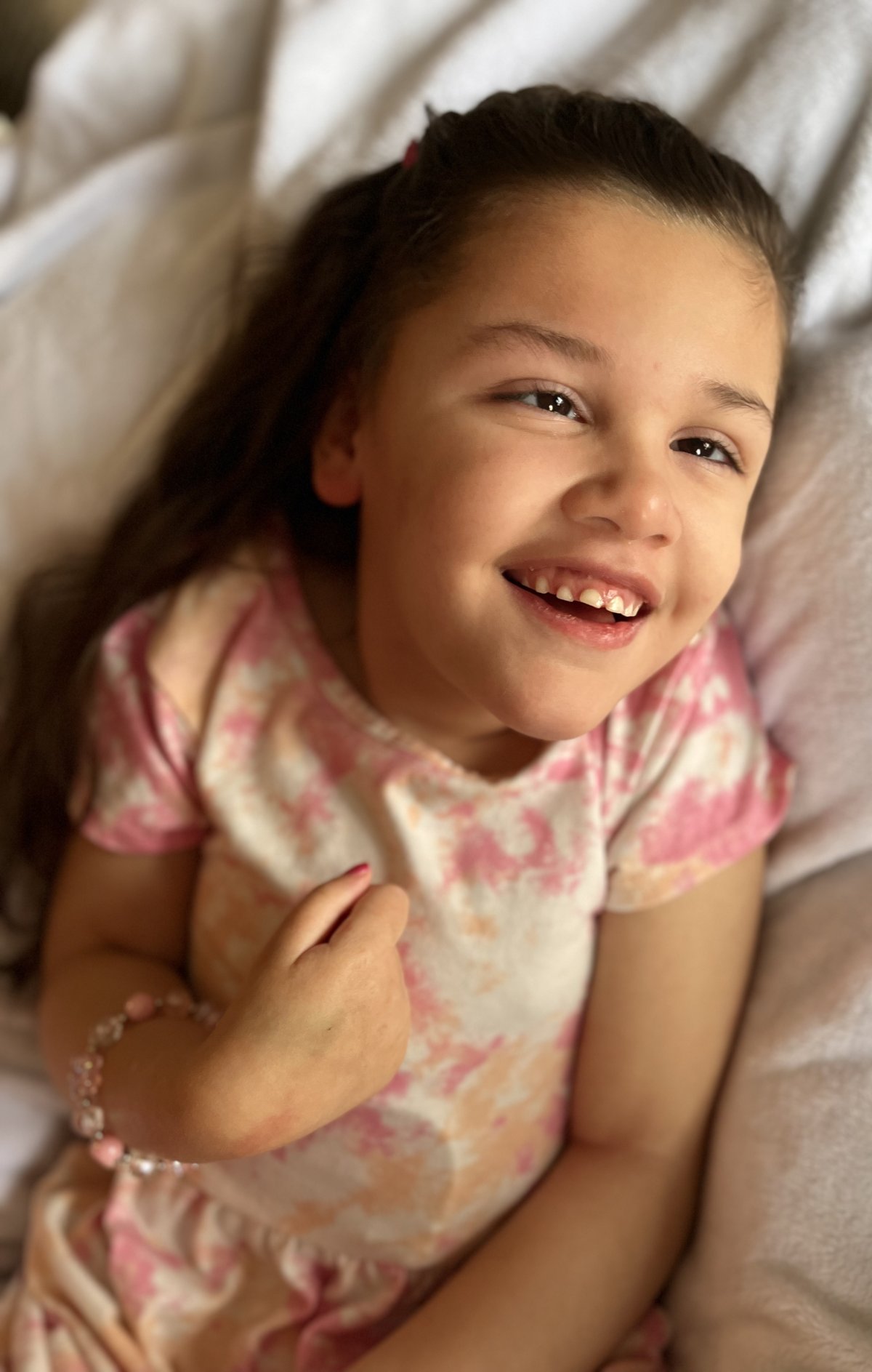
Four years have passed since Amelia's diagnosis, and her family continue to raise awareness for the disease, which so few people know about. There is no cure, so they continue advocate for more funding to be provided to look into potential treatments, in the hopes that one day, children like Amelia won't suffer the devastating consequences of Batten disease.
Not only is it an emotional struggle, but the diagnosis takes a financial toll as well, because Jennifer has been forced to stop working so she can be a full-time carer.
"We have seen a lot of children pass from this evil disease, and because of this, we do not take anything for granted. Amelia may not have the childhood we dreamed for her, but we try our hardest to give her the best life we can.
"We are at a point in this journey where we realize that a treatment may not come in time for our daughter. It's not easy to accept, and some days are harder than others. But we still advocate and spread awareness because these children deserve better. Someday, there will be a treatment, and other families won't have to go through this trauma of being told there's nothing that can be done.
"We have the honor of being her parents, and she is here with us now and that is a gift. Every smile she gives us is a gift, and we know that it could be gone in an instant."
Is there a health issue that's worrying you? Let us know via health@newsweek.com. We can ask experts for advice, and your story could be featured on Newsweek.
Uncommon Knowledge
Newsweek is committed to challenging conventional wisdom and finding connections in the search for common ground.
Newsweek is committed to challenging conventional wisdom and finding connections in the search for common ground.
About the writer
Alyce Collins is a Newsweek Life and Trends reporter based in Birmingham, U.K. with a focus on trending topics that ... Read more





